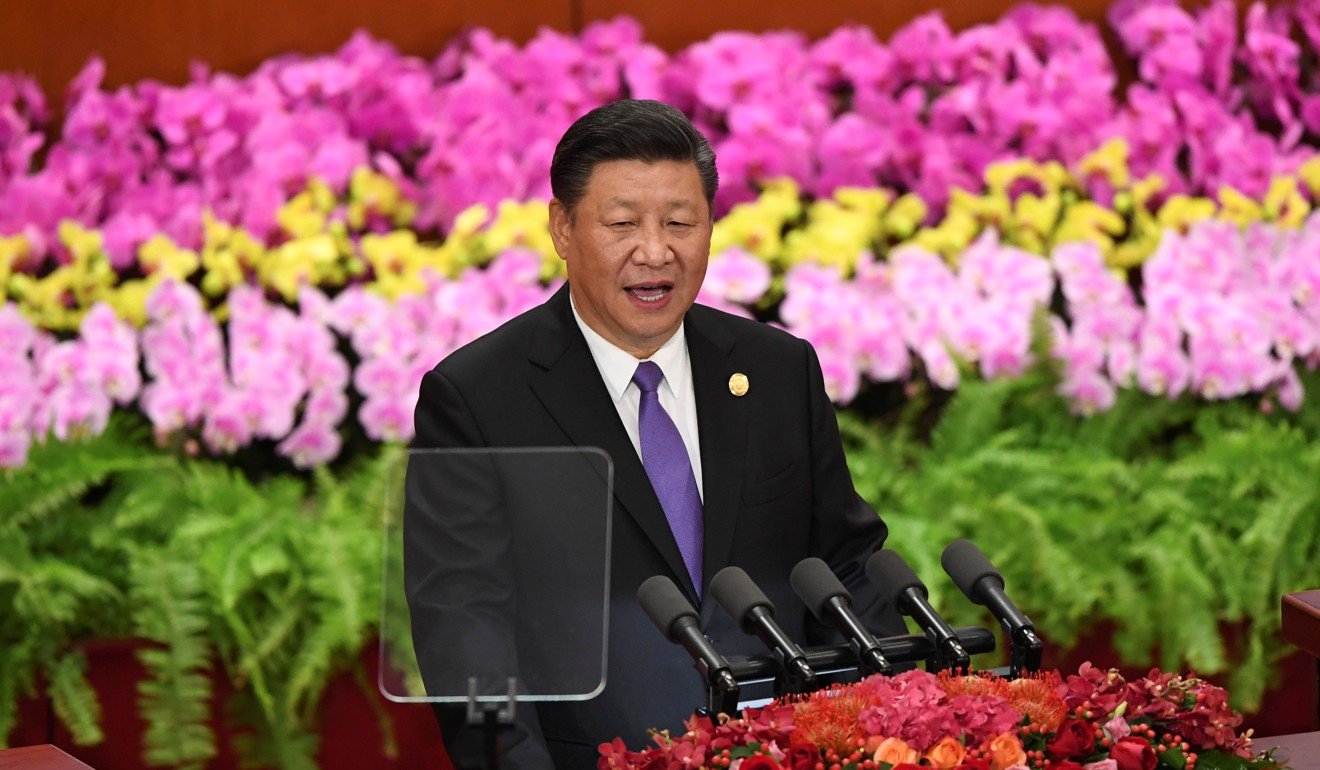8.1.2020 15:00
Harare — After shedding 8% of their workforce last year, Zimbabwean banks may cut more jobs in 2020 as the economy shrivels and the sector increasingly shifts away from cash and towards digital services.
Post published in: Business
8.1.2020 15:00
Harare — After shedding 8% of their workforce last year, Zimbabwean banks may cut more jobs in 2020 as the economy shrivels and the sector increasingly shifts away from cash and towards digital services.
Post published in: Business

Zimbabwe’s economy is likely to shrink by 13% in 2020, the Economist Intelligence Unit (EIU) has predicted, as the southern African country faces a third consecutive year of drought.
Agriculture is the backbone of Zimbabwe’s economy but poor rains in the past two years, as well as forecasts of another drought in 2020, have left the country with little hope of economic revival this year.
The prediction will further compound Zimbabwe’s woes. The country is facing severe cash, fuel, medicine and power shortages.
The UK-based EIU, which analyses financial markets and country risk profiles, said Zimbabwe will be among its worst performers in 2020. The southern African state will be second last and Venezuela, whose economy is expected to contract by 20, 5%, at the bottom.
Last week, the World Food Programme (WFP) listed Zimbabwe among the countries in Sub-Saharan Africa that will dominate global hunger hotspots in the first half of 2020.
As a result of 2019’s drought Zimbabwe’s cash-strapped government will spend more money importing food this year, piling greater misery on its battered economy.
The WFP listed Zimbabwe among the 15 global hotspots that face hunger in 2020, while the country has also been grouped among three other crisis-ridden nations in Sub-Saharan Africa.
“Escalating hunger needs in Sub-Saharan Africa dominate a World Food Programme analysis of global hunger hotspots in the first half of 2020 with millions of people requiring life-saving food assistance in Zimbabwe, South Sudan, the Democratic Republic of Congo and the Central Sahel region in the coming months,” WFP executive director David Beasley said last week.
Beasley said the effects of Zimbabwe’s drought will be exacerbated by the ailing economy, which faced its worst meltdown in a decade last year.
“The WFP report notes that amid an imploding economy, the situation in Zimbabwe is increasingly precarious as the country enters the peak of its ‘lean season’ when food is at its most scarce and the number of hungry people has reached its highest point in a decade. The WFP is planning assistance for more than 4-million people in Zimbabwe as concerns grow that the impact of a regional drought could drag yet more countries down in the first months of the year,” he said.

Tinashe Farawo
The bodies of the two rangers were taken to the capital, Harare, for examinations, said Tinashe Farawo, spokesman for the Zimbabwe National Parks and Wildlife Management Authority on Tuesday.
In an earlier tweet, Farawo said one of the park rangers “had multiple stab wounds and had hands tied behind the back.”
The two rangers had arrested four Zambian men for poaching and on Dec. 31 were transporting them by boat to Kariba town to be charged and jailed. But the four suspects overpowered the rangers and threw them into Lake Kariba, said Farawo. The rangers’ bodies were discovered after a week-long search.
Authorities are searching for the suspected poachers, he said.
The rangers had caught the poachers in Matusadona National Park, home to lions, leopards, elephants and hyena on the shores of Lake Kariba, one of the world’s largest man-made lakes. The park is popular with tourists who go on walking safaris and boating on the lake.
The rangers had detained the poachers overnight before attempting to take them by boat to Kariba town.
Although the parks agency has recorded “a significant decrease” in poaching in the wildlife rich southern African country, cases of armed contact between poachers and rangers have been on the rise in the Kariba area, where Zimbabwe borders Zambia to the north, said Farawo. The two countries share the lake as well as the magnificent Victoria Falls along the Zambezi River.
Post published in: Featured
7.1.2020 15:11
Zimbabwean President Emmerson Mnangagwa’s move to consolidate power is at an advanced stage after gazetting the removal of the running mate clause from the constitution on New Year’s Eve.
Post published in: Featured

Zimbabwe’s agriculture sector, hard hit by drought, is facing another significant risk as dam levels recede due to the high temperatures.
The country, which is facing serious food shortages, has had a poor rainfall season and was hoping to turn to irrigated crop to mitigate the impact of the drought.
In his 2020 National Budget, Finance Minister Mthuli Ncube set aside a budget of some Z$500m for irrigation as a way of “climate-proofing our agriculture”.
He also set aside a budget of some Z$250m for dam construction.
According to the Zimbabwe National Water Authority, water levels in the country’s major dams have started receding owing to the prevailing high temperatures as well as the reduction in river flows.
“Continued drawdowns for domestic and irrigation purposes is also a major contributor,” the water authority said.
As at Friday, the national dam level average had dropped to 48.8%, ZINWA tweeted on Friday.
This, analysts said, will have a significant impact on the country’s irrigation efforts.
Experts have said a rise in temperatures associated with climate change also resulted in an increase in insect metabolism and growth rate.
Wendy Madzura, an agronomist with SeedCo, said farmers will have to increase crop scouting to minimise damage from insects.
Post published in: Featured

The United Nations warned last week that the southern African nation faced a second successive poor harvest this year because of patchy rains, compounding problems for millions of people already grappling with last year’s drought and the worst economic crisis in a decade.
CBZ said in a notice it wanted to raise 500 million Zimbabwe dollars ($30.6 million) to purchase seeds, fertiliser and chemicals for maize and soybean production.
The bond has a tenor of 270 days and an interest rate of between 15% and 18%.
A second dollar-denominated bond worth $50 million with the same tenor seeks to raise money to import farming chemicals and fertilisers that are not available locally, CBZ said. The bank will pay 9.5% interest.
Maize is the country’s staple crop, while soybeans are used in the production of cooking oil and animal feed.
Under a new government-backed programme to ensure food security, CBZ buys farm products and issues farmers with vouchers to purchase them. The bank will then recoup its money from farmers who surrender part of their harvest. The bonds are guaranteed by the government.
Zimbabwe is nearly halfway through its summer crop season, but the rains have been poor, raising concerns that the government may not meet its growth target of 3.1% this year. Agriculture accounts for 17% of the country’s gross domestic product.
The poor rains will likely prolong 18-hour daily power cuts as dam water levels for the biggest hydro electricity plant remain precariously low.
Up to 8 million people, half Zimbabwe’s population, will require food aid this year after last year’s maize harvest fell by half, according to the United Nations.
Post published in: Agriculture

Constantino Chiwenga
Prosecutors say Marry Mubaiwa, who denies all charges, tried to unplug Chiwenga’s life support tubes in a South African hospital in June. She was initially arrested on Dec. 14 on separate charges including fraud and money laundering.
A High Court judgment seen by Reuters showed Judge Pisirai Kwenda has granted Mubaiwa bail for 50,000 Zimbabwe dollar ($3,000), and ordered her to surrender her diplomatic passport and report to a local police station once every two weeks.
Mubaiwa is also required to hand over the title deeds of her parents’ house with the court, the document showed.
Her lawyer, Taona Nyamakura, said Mubaiwa could be released from prison on Monday or Tuesday.
Her arrest has sparked accusations against Chiwenga and the anti-corruption agency that initially arrested her.
Opposition politicians say the vice president is using his position to influence a divorce settlement with Mubaiwa, while the Zimbabwe Anti-Corruption Commission (ZACC), which says she illegally transferred $900 million to South Africa, is conflicted.
The ZACC denies this. Chiwenga, who returned to China last week for a medical review, could not be reached for comment.
Post published in: Featured

The proposed amendments approved by Cabinet relating to the appointments of Vice Presidents, the Prosecutor General, Public Protector, promotion of judges and the terms of office of judges. The proposed amendments include the rejected Constitution Amendment Bill No.1 of 2016. Any amendments to the Constitution must seek to further entrench democracy and deepen the enjoyment of rights by citizens.
We remind political parties and Cabinet that the 2013 Constitution of Zimbabwe was bred out of popular and concerted advocacy by citizens and civil society and through its adoption in 2013 is an expression of the will of citizens. In our view, the proposed amendments seek to entrench the interests of individuals and dent the independence of an already captured judiciary.
As an umbrella body of civic society organizations in Zimbabwe advocating for democratic development, we reiterate that the preservation and full implementation of the Constitution is a duty of every citizen regardless of political preferences and that the Constitution, if fully implemented and adhered to, is a lasting solution to Zimbabwe’s problems.
We further reiterate that as calls for dialogue increase such dialogue must be anchored on preserving and strengthening Zimbabwe’s constitutional order guided by an agreed all stakeholders roadmap to the resolution of the Zimbabwe crisis.
In this regard, we hold the firm view that while citizens and stakeholders are allowed to develop and proffer transitional alternatives to the national crisis, such alternatives must never be anchored on mutilating the Constitution by suspending key democratic processes that allow citizens to choose leaders of their choice timeously. Attempting to address the national crisis by suspending the Constitution is counter to the very foundations of our nation.
In the same vein, restricting the dialogue process to political parties will only create a political pact that excludes the concerns of ordinary citizens. This therefore underlines the importance of a process accepted by all stakeholders and guarantor at the SADC, African Union or United Nations level.
We reiterate that efforts at arresting the multifaceted crisis facing the country must be hinged on a competitive national dialogue process which is seated on broad citizenry issues and key reforms agreed by stakeholders with clearly set timelines and a monitoring framework. We also raise our concerns over a national dialogue process that is facilitated by the National Peace and Reconciliation Commission on the basis of the following:
We further reiterate the importance of creating a conducive environment that will allow stakeholders to freely share ideas on transitional alternatives and as part of confidence and trust building in the national dialogue, the Zimbabwe must immediately meet the following conditions:
We reiterate that efforts at arresting the multi faceted crisis facing the country are hinged on a proper national dialogue process that seeks to put the concerns of ordinary citizens on board and preserve Zimbabwe’s Constitution.
Addressing the Zimbabwean crisis implies addressing the concerns of the ordinary citizens who have had to bear the brutal effects of an economic meltdown stemming from a constitutional and legitimacy crisis.
Public office bearers must honour their obligations in upholding, protecting and defending the Constitution.
On our part as Crisis in Zimbabwe Coalition, we have set our minimum demands for the national dialogue process based on the defense and observation of the Constitution.
Our demands are highlighted below:
On the process:
1) It is our conviction that the national dialogue process must involve all stakeholders and a national visioning process that has civil society, government, political parties, business, religious groups and labour unions among other critical stakeholders. The dialogue process should produce a clearly timed roadmap to the demilitarisation of civilian political processes and the restoration of normalcy by focusing on key political, economic and social reforms. In this regard, we call for FULL CONSULTATION of all stakeholders rather than cosmetic processes.
On the Economy:
2) It is imperative to arrest the economic downturn in Zimbabwe based on a clear reform roadmap and implementation of pro-poor and inclusive economic policies. Efforts at economic transformation, stabilisation and growth should be aimed at achieving inclusive sustainable economic growth and development.
On Constitutionalism, Rule of Law, Human Rights and Human Security:
3) The Government of Zimbabwe must uphold and guarantee citizens’ rights as enshrined in the Zimbabwean Constitution and other regional and international human rights treaties and statutes. Full implementation of the country’s constitution is equally important in promoting democracy in Zimbabwe.
4) The Government of Zimbabwe must respect the fundamental right of access to information, freedom of expression as well as freedom of association.
5) There is need to immediately operationalise a comprehensive programme on national healing, reconciliation and nation building that will depolarise society and entrench the respect for diversity, inclusion and tolerance in all facets of life.
6) The army must desist from partisan politics and confine themselves to the barracks. There is an imperative need to de-militarise the Zimbabwean state.
7) There is need for non-interference into the work of institutions that support democracy. This again calls for full implementation and respect of the country’s constitution. Also, government must not be seen to be criminalising the work of civic society organisations.
8) CiZC holds the firm view that implementation of electoral reforms is critical as a way of doing away with disputed elections that often result in a legitimacy crisis which comes with negative impacts on democracy and economic development
Post published in: Featured

6.1.2020 15:24
The High Court has granted Marry Mubaiwa ZWL$50 000 bail. She is facing charges of attempted murder of VP Chiwenga and externalisation of foreign currency, money laundering and fraud.
Mary Chiwenga
She has to surrender her diplomatic passport and title deeds to her Highlands home as surety, report once a fortnight to the police and ordered not to interfere with state witnesses
source: ZBC ONLINE
Post published in: Featured
The new city will also become home to the country’s reserve bank, upmarket suburbs, hotels and shopping malls.
Zhao Baogang, the Chinese deputy ambassador to Zimbabwe, said the project was “a symbol of the friendship between China and Zimbabwe”.
“The building is important in the decolonisation of Zimbabwe,” he said. It is expected to be completed by March 2021.
The existing 100-seat, colonial-era parliament. Photo: EPA-EFE
Paying for the construction of grandiose symbols of the state, such as presidential palaces and parliamentary buildings, through grants or interest-free loans, has been one of Beijing’s major diplomatic strategies on the continent.
When China first started establishing diplomatic relations with Africa between the 1950s and 1970s, it used offers of financial help and interest-free loans and sent over medical teams to endear itself to African countries.
In return, those nations helped Beijing secure a seat on the United Nations Security Council in 1971. Until then the seat had been occupied by the Republic of China government seated in Taiwan.
But it was the construction of the Tanzania-Zambia Railway (Tazara), Beijing’s most ambitious and expensive project, that did the most to boost China’s political capital on the continent.
The railway, which was built between 1970 and 1975 for US$500 million via an interest-free loan to be repaid over 30 years, necessitated the deployment of 25,000 Chinese workers. Once completed, the line stretched almost 1,870km from Dar es Salaam Port to the Zambian town of Kapiri Mposhi, where the country’s coal mines are situated.
Is China pushing Africa into a ‘debt trap’?
Beijing has since funded several projects, including soccer stadiums, in nations such as Cameroon, Mozambique, Malawi, Ghana, Angola and Zambia. It has also paid for parliamentary buildings in the Republic of Congo, Lesotho, Mozambique and Sierra Leone. Further, China has gifted presidential palaces to countries such as Togo, Sudan, Burundi and Guinea-Bissau.
The trend has picked up recently with Beijing bankrolling the building of the US$200 million African Union headquarters in the Ethiopian capital, Addis Ababa.
Also, last year, Beijing said it would fund the building of the new headquarters for the Economic Community of West African States in Abuja, Nigeria, for US$31.6 million.
Meanwhile, China is building a US$58 million parliamentary complex in the Republic of Congo and rebuilding the burnt parliament in Gabon.
Two weeks ago, Zambia announced that China has agreed to fund construction of a new international conference centre that will be used to host the African Union Heads of State Summit in 2022.

China has helped build railways in Kenya. Photo: Bloomberg
During the 2018 Summit of the Forum on China-Africa Cooperation in Beijing, Chinese President Xi Jinping pledged to extend US$60 billion in financing to Africa over three years.
That will include US$15 billion in grants, interest-free loans and concessional loans, US$20 billion in credit lines, the setting up of a US$10 billion special fund for development financing and a US$5 billion special fund for financing imports from Africa.
China is the continent’s largest bilateral lender, pouring billions of dollars into African countries for the building of motorways, dams and railways under the Belt and Road Initiative, the multibillion-dollar plan to link Asian and European economies to a China-centred trading network.
China advanced more than US$143 billion between 2000 and 2017, according to figures from the China Africa Research Initiative at the Johns Hopkins School of Advanced International Studies in Washington. Chinese aid to Africa stood at US$29.4 billion between 2003 and 2017, the figures showed.
Kenya opens massive US$1.5 billion railway project funded and built by China
Dr Obert Hodzi, an international relations scholar at the University of Liverpool, said these infrastructure “gifts” were meant to show China’s benevolence, its willingness to share its prosperity with other developing countries and its sacrificial giving that has endeared it to African leaders since the Tazara railway.
These gifts, he said, also allowed Beijing to re-emphasise the tangible and much-needed infrastructure benefits it provided to African economies – differentiating it from Western powers that focus on “intangible issues of governance and human rights” widely seen as disruptive by the ruling elites in Uganda, Zimbabwe and Zambia.
“Currently, the strategy is working,” Hodzi said. “[President Yoweri] Museveni has recently praised the Chinese for not being jealous of Uganda and caring about its development. Beijing also hopes that recipient governments will reciprocate by favouring Chinese businesses.”

China’s President Xi Jinping pledged to extend US$60 billion in financing to Africa over three years in 2018. Photo: Reuters
David Shinn, an American diplomat and adjunct professor at George Washington University’s Elliott School of International Affairs, said China’s practice of building, at no charge, the African Union headquarters, regional African organisation headquarters, presidential palaces, military headquarters, public stadiums and political party headquarters was “brilliant public relations and probably buys a great deal of influence with African governments, regional organisations and the general public”.
But he questioned whether African leaders really believed the projects involved no quid pro quo, as Chinese diplomats often claim. If so, they were mistaken, he said.
“African leaders can be excused for taking no interest in Chinese internal issues such as human rights, the treatment of Uygurs in Xinjiang, the situation in Tibet, the building of islands in the South China Sea and the status of Hong Kong,” Shinn said.
“But a surprising number of African governments are supporting China’s position on these policies. That is where the quid pro quo comes into play.”
Stephen Chan, a professor of world politics at the University of London’s School of Oriental and African Studies, said China built prestige projects internationally.
“They sit alongside the infrastructure projects – roads, railways – for which China is well known,” he said.
“But they are not as expensive. In a way, it is visibility for less outlay. It also gives exposure to Chinese construction firms. For China, it is a win-win situation.”

During the 2018 Summit of the Forum on China-Africa Cooperation in Beijing, Xi Jinping pledged to extend US$60 billion in financing to Africa over three years. Photo: Bloomberg
But critics have questioned the motives behind China’s largesse. Last year, a French newspaper Le Monde claimed Beijing was spying on the African Union (AU), saying it had installed hidden microphones in the building and was taping sensitive information.
Beijing dismissed the report’s “groundless accusations”, while the AU called them “baseless”.
Analysts say China’s efforts to gift imposing projects is part of its broader chequebook diplomacy programme in Africa to win the affection and allegiance of its elite.
Bradley Parks, executive director of AidData, a research lab at the College of William and Mary in the US state of Virginia, said Beijing often plied African leaders with lavish spending on projects, such as stadiums, theatres, museums and parliamentary buildings, that disproportionately benefited urban elites.
Beijing’s purpose was partly to secure African countries’ support for its policy positions such as its opposition to the South China Sea arbitration process at the Permanent Court of Arbitration in The Hague and its adherence to a “one-China” policy on Taiwan, he said.

China’s deputy ambassador described Zimbabwe’s new parliament building as a symbol of the friendship between the two countries. Photo: Twitter
Parks was part of a team that recently published an AidData paper showing that Chinese aid was used either to buy African governments’ support for its foreign policy or as a reward for them providing it.
“Across the continent, we find that there is a strong, positive, and statistically significant relationship between Chinese aid provision and voting with China in the UN General Assembly [UNGA],” he said.
“To give you a sense of the magnitude of this effect, our statistical model indicates that a 10 per cent increase in UNGA voting similarity with China yields an 86 per cent increase in Chinese aid, on average,” he said.
As an example, he said, the model predicted that if Rwanda moved from its 67 per cent level of voting alignment with China in the UN General Assembly to Egypt’s level – 93 per cent, the maximum level of UN voting alignment with China in their Africa sample – it would see a 289 per cent increase in aid from China.
Conversely, if Egypt’s 93 per cent level of voting alignment with China in the UN General Assembly fell to Equatorial Guinea’s level (65 per cent), “our statistical model predicts that Egypt would see an 87 per cent reduction in aid from China”, Parks said.